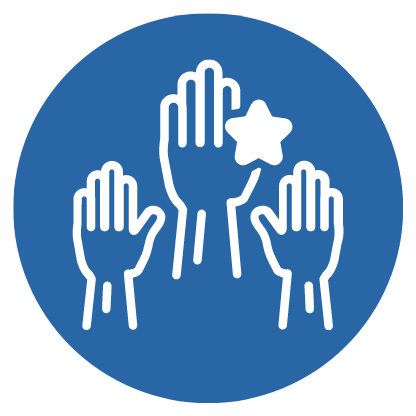Brené Brown on Blame | RSA
We Make Your Education Count

Get the Credit You Deserve and Become the Most Attractive Job Candidate by Earning and Posting A+ Badges to Your Linkedin Profile.
Sign Up to Get Started at Accredicity
Discover the real cause of blame and how to take accountability with Brené Brown's inspiring story.In this video, Brené Brown explores the topic of blame and the toll it can take on relationships. She reveals her own personal experience of being a blamer, sharing the story of dropping her coffee on the floor and immediately blaming her husband. Brown explains that blame is often a way to discharge discomfort and pain, although it has an inverse relationship with accountability. She argues that blaming is not only corrosive in relationships, but also prevents us from having empathy for one another. Brown encourages people to look for opportunities for vulnerability and talk about their feelings instead of resorting to blame. Learning Outline1. Blaming is a way of discharging discomfort and pain, and has an inverse relationship with accountability. Instructional ContentBlaming is a natural human response when something goes wrong. We want to find someone to blame in order to regain control and make sense of what happened. Unfortunately, this attitude can be corrosive to relationships, and can prevent us from having empathy for others. In this video, Brené Brown shares a personal story about how quickly she can jump to blame. After spilling coffee all over her kitchen floor, her first thought was to blame her husband for not being home on time. It was only after being on the phone with him that she realised how quickly she had jumped to blaming him for something that wasn’t his fault. We can learn from Brené’s story that it’s important to take a step back and pause before pointing fingers. Blaming doesn’t accomplish anything and may prevent us from having meaningful conversations with our loved ones. Instead, we should focus on accountability, which involves understanding our own feelings, taking responsibility, and having honest conversations with others. Brené Brown’s video offers an insightful look into how quickly we can jump to blame, and how to be more accountable and understanding of ourselves and others. If you’re a blamer, this video is an important reminder to pause before pointing fingers. Leadership
|

Brené Brown tells a funny story about a time when she realised how much she was a blamer. Blaming is when you try to figure out whose fault something is right away. Brené explains that blaming is a bad way to react because it's like a way of getting rid of anger and it doesn't let people talk about how they feel and be accountable for what happened. Blaming is like a closed door to understanding each other and it's not a good way to solve problems. Video Quotes1. "Blaming is simply a way that we discharge anger. People who blame a lot seldom have the tenacity and grit to actually hold people accountable, because we spend all of our energy raging for 15 seconds and figuring out whose fault something is." - Brené Brown 2. "If you enjoy blaming, this is where you should stick your fingers in your ear and do the "nanana" thing, cos I'm getting ready to ruin it." - Brené Brown 3. "Accountability, by definition, is a vulnerable process. It means me calling you and saying, "My feelings were really hurt about this." And talking, not blaming." - Brené Brown Related Quotes1. "I'd rather it be MY fault than no one's fault. Because why? It gives us some semblance of control." - Brené Brown 2. "Blaming is simply a way that we discharge anger. People who blame a lot seldom have the tenacity and grit to actually hold people accountable, because we spend all of our energy raging for 15 seconds and figuring out whose fault something is." - Brené Brown 3. "When something happens and we're hearing a story, we're not really listening. We're in the place where I was - making the connections as quickly as we can about whose fault something was." - Brené Brown Competencies1. Leadership Learning Outcomes1. Understand the effects of blame on relationships and accountability - Comprehension 2. Analyze the inverse relationship between blame and accountability - Analysis 3. Explain the motivations behind blame and the consequences that follow - Explanation 4. Assess the impact of blame on communication and empathy - Evaluation 5. Apply strategies to reduce or eliminate blame in relationships - Application 6. Create solutions to minimize the use of blame in difficult situations - Synthesis Sample Answers1. From the video, I learned that blaming is a quick reaction that many of us have when something goes wrong. We blame to find a semblance of control, but in reality, it has an inverse relationship with accountability. Blaming is also very corrosive to relationships and it prevents us from empathizing with one another. 2. By listening to the video, I discovered that blaming is a way for us to discharge anger and discomfort. It often has nothing to do with actually holding people accountable or taking responsibility for our actions. 3. Watching the video taught me that blaming takes away from our opportunities for empathy. We become so focused on whose fault it is that we don't take the time to actually listen and understand the story. Brené BrownBrené Brown is a research professor at the University of Houston where she holds the Huffington Endowed Chair at the Graduate College of Social Work. She is a New York Times best-selling author and her TED talks have been viewed over 35 million times. She is an expert on shame, vulnerability and empathy, and is widely considered a leader in the field of research on courage, vulnerability, shame, and empathy. Her research is based on 12 years of qualitative interviews with hundreds of people, and focuses on the importance of understanding and managing emotions, and the power of connection. She is associated with the University of Houston Graduate College of Social Work and her website can be found here: Brené Brown AssessmentQ: When Brené dropped her cup of coffee on the floor, her first thought was? Answer: A. Whose fault is it? QuestionsQuestions for Students: Questions for Real-Life Scenarios: KeywordsBlaming Discomfort, Pain, Accountability, Empathy, Grit Facts1. Blame is an attempt to discharge discomfort and pain, and has an inverse relationship with accountability. Trends1. Create an online course teaching people how to take accountability instead of blaming. SourceThis learning instructional guidance was formulated using the GPT-3 language model created by OpenAI. ShareWhen something goes wrong, it's easy to blame someone else - but it's not always the right thing to do. Let's try to practice accountability instead. #empathy #responsibility #socialmedia @Accredicity |








 125 Creds - Leadership
125 Creds - Leadership



